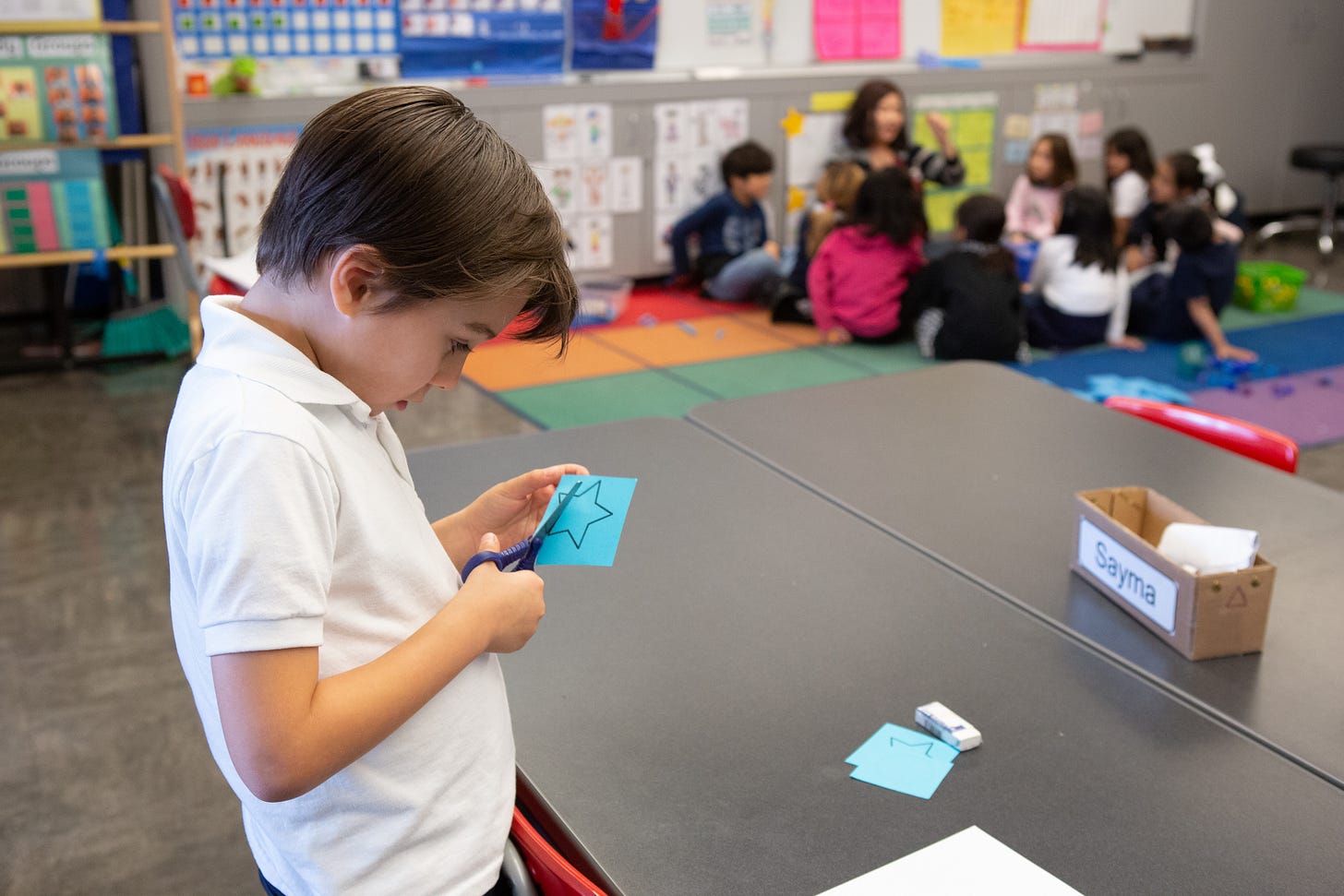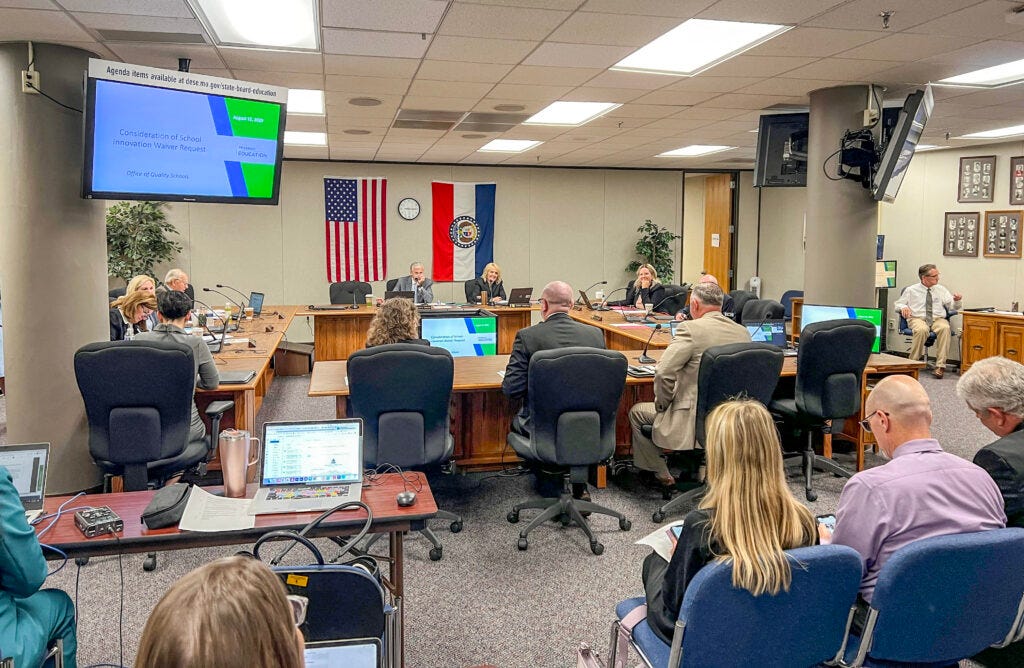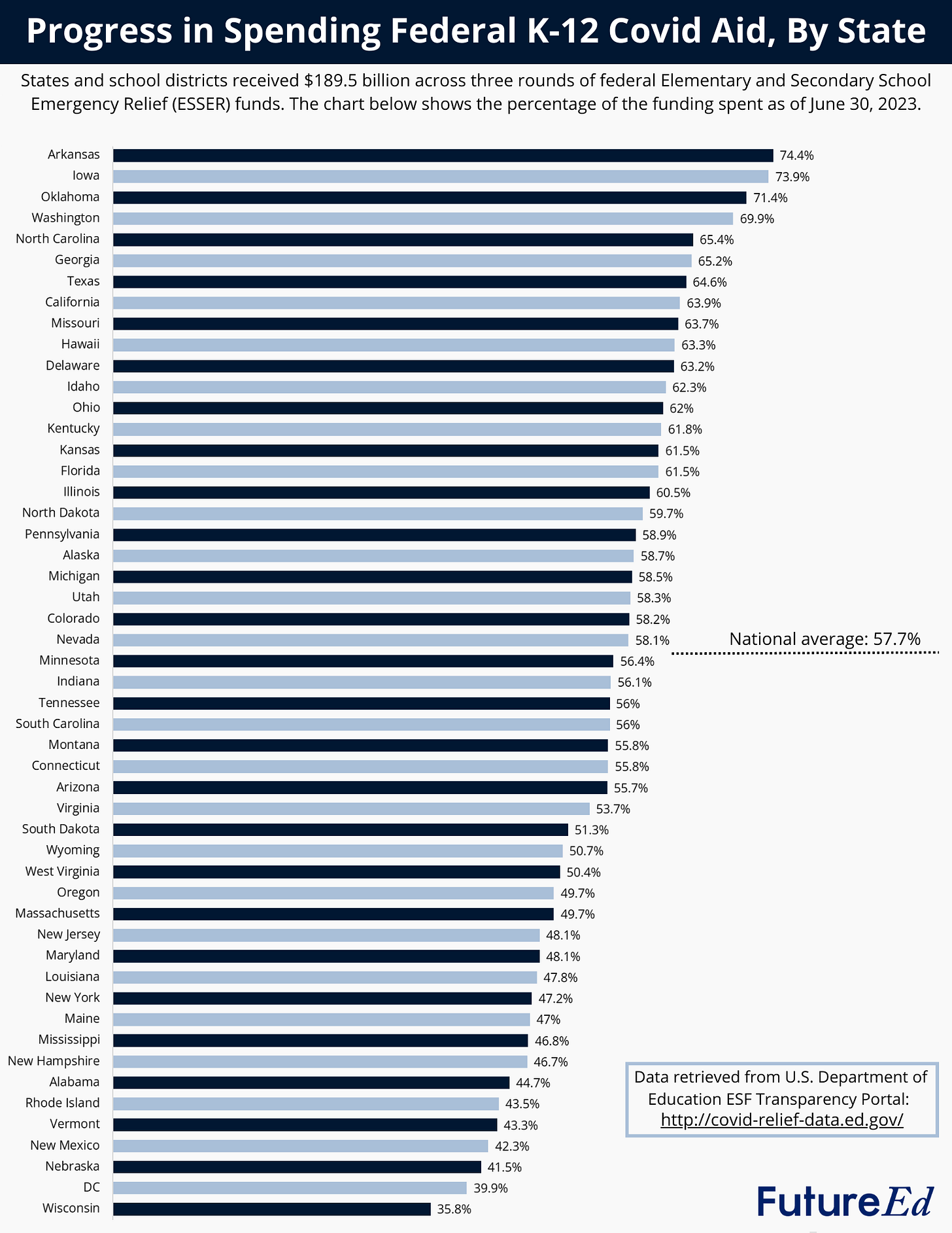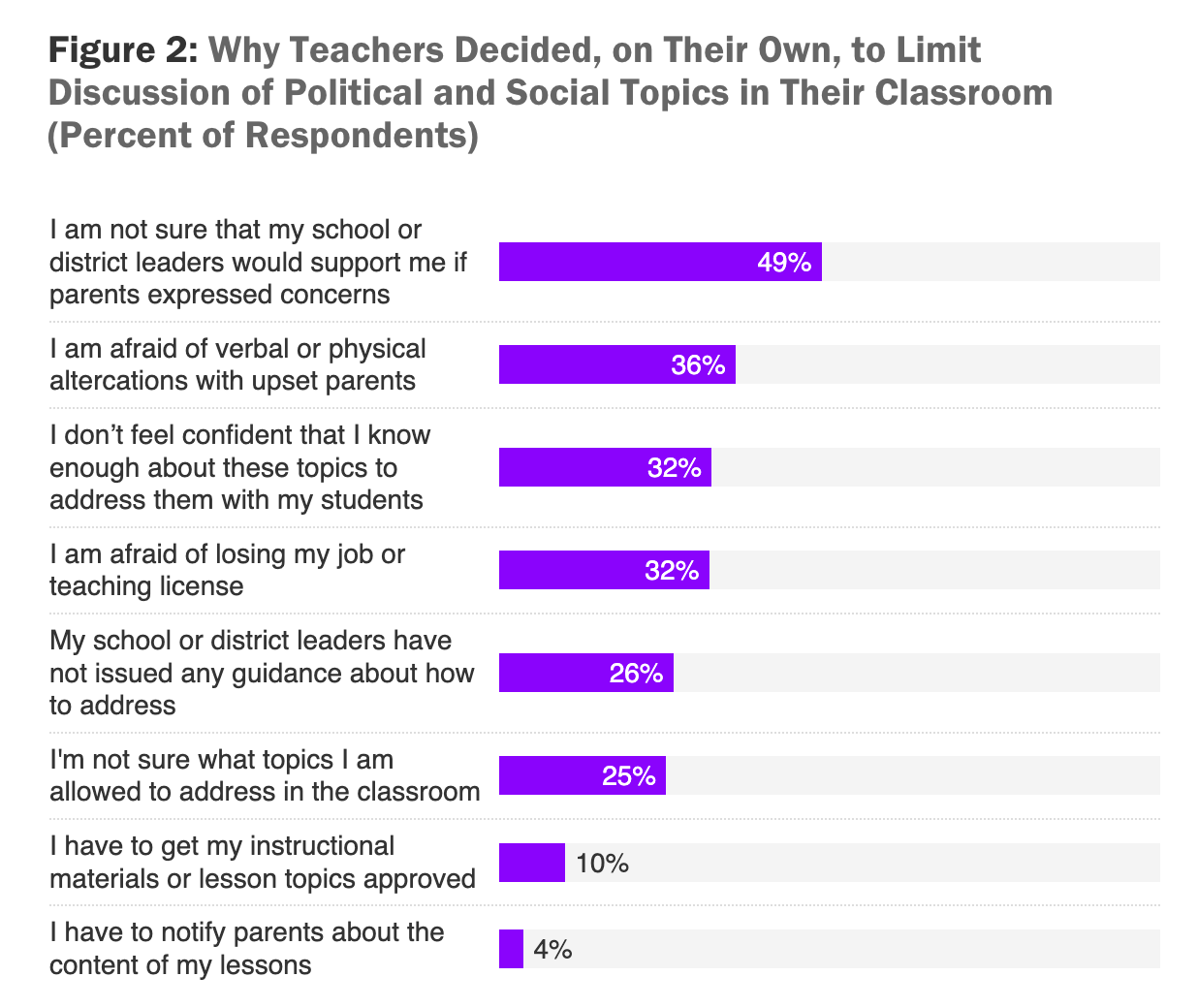The Education Policy Hotlist
Top news in U.S. education policy for the week of August 21st - 25th
Welcome back to the Education Policy Hotlist, your weekly update on the latest developments in education policy.
We hope you enjoyed the back-to-school season and started the new school year with enthusiasm and optimism. We are here to keep you informed and updated on the most relevant topics and trends in education.
In this week’s edition, you will find:
New research on learning recovery, which examines how students are performing academically after the disruptions caused by the COVID-19 pandemic.
Updates on statewide test data show how different states report and use their assessment results to inform policy and practice.
New policies and programs that support the teacher workforce aim to address teacher recruitment, retention, and development challenges — but may raise quality questions.
A new study on how to foster belongingness for teachers of color provides insights and recommendations on creating more inclusive and supportive school environments for diverse teachers.
We hope you find this week’s edition informative and helpful. As always, let us know if you have any additions for the next update!
The Weeks Ahead
Tuesday, August 29th at 1:00 p.m. (EST), The Bipartisan Policy Center is hosting a webinar titled “Apprenticeships: A Growing Strategy for the Child Care Workforce.” Register here.
Tuesday, September 12th at 11:00 a.m. (EST), The OECD is hosting the annual “Education at a Glance” report webinar. Hosted by NCEE’s Vicki Philips, the webinar will feature an overview of the latest findings. Register here.
Thursday, September 14th, 2023, at 9:00 a.m. (EST), The Bipartisan Policy Center is hosting a hybrid event called “Challenging Cancel Culture: Can Gen Z Change Course?” Find in-person registration here and virtual registration here.
Teacher Workforce
How to Make Teachers of Color Feel More Welcome at School
A new study by RAND provides information about the conditions that teachers of color perceive as contributing to a sense of belonging at their schools, based on a survey of the American Teacher Panel. The authors found that teachers of color valued efforts to recognize and celebrate race or educate the school community about race, culture, school climate, relationships, and demographics. The main findings include:
A majority of teachers of color, when asked how their school cultivates a sense of belonging for them, described efforts to recognize and celebrate race and educate the school community about race and culture.
Half of teachers of color mentioned that school climate and standard school practices (such as social gatherings) fostered a sense of belonging.
Teachers of color who indicated they had strong positive relationships with fellow teachers tended to highlight common school practices, such as social gatherings and collaboration time, as factors that created a sense of belonging. Teachers of color without strong positive relationships tended to describe student-focused efforts.
Virtual Teachers Fill the Gap Amid Shortages But Raise Concerns Over Quality
As districts lack qualified teachers, some are turning to companies that provide live, online instruction in core subjects. However, this practice, known as “Zoom-in-a-room,” has drawn criticism from parents, educators, and investors who question its effectiveness and suitability for students.
Why does this matter? Students are facing declining mental health and relationship loss. Using the “Zoom-in-a-room” model may not support (and may even hinder) student engagement and interpersonal skill development that many students missed during school closures.
Missouri Board of Education Seeks to Improve Teacher Retention
The Missouri State Board of Education approved recommendations to address the state's teacher shortage and retention crisis. The proposals include increasing teacher salaries, providing mentoring and induction programs, expanding alternative certification pathways, and creating a statewide teacher recruitment campaign. The board also approved a pilot program to test a new teacher evaluation system incorporating student growth measures. The recommendations will be presented to the governor and the legislature for funding and implementation.
Federal Education Policy
Biden Advisor Kirabo Jackson’s School Research Highlights
Kirabo Jackson, a Northwestern University economist, was appointed as a member of President Biden’s Council of Economic Advisers this month. Jackson’s research measures and improves school quality, teacher effectiveness, and student outcomes. Some of his key findings are:
School quality matters more than test scores for long-term outcomes such as graduation rates, college attendance, and earnings.
Teacher quality can be improved by providing feedback, mentoring, and incentives.
School finance reforms can reduce achievement gaps and increase social mobility.
Charter schools can positively affect student's academic and non-academic outcomes, but the results vary by location and model.
Federal Agencies Promote School Safety Resources Online
The U.S. Departments of Homeland Security, Education, Health and Human Services, and Justice have launched a public awareness campaign highlighting school safety resources and evidence-based practices available through SchoolSafety.gov. The campaign aims to help schools create and sustain welcoming, safe, and supportive learning environments for students and educators. The campaign will release a range of resources, including a video, communications toolkit, and infographics, to help schools learn more about how to enhance school safety, access support, and easily share information about the campaign with others in their community.
Assessment and Accountability
Missouri Coalition Receives Approval for Innovation Assessment Waivers.
The Success-Ready Students Network, a group of Missouri districts, wants to move from the state’s annual standardized testing to assessments administered multiple times a year — also known as through-year assessments. The districts believe this would allow them to access real-time results and support personalized, competency-based learning.
A New Role for a Formative Assessment Expert
In this blog post, Caroline Wylie, a senior associate at the Center for Assessment, shares her reflections on her transition to a new job and a new learning journey. She describes her previous work on formative assessment, which is a planned, ongoing process used by teachers and students to improve learning outcomes and self-regulation. She also outlines her current interests and challenges, such as scaling up formative assessment practices, supporting district transformation, adapting to competency-based learning systems, and using curriculum design to enhance formative assessment. She invites readers to join her in exploring these topics and learning from each other.
Enrollment and Choice
The Risks and Challenges of Education Savings Accounts
A new article by Joshua Cowen, a professor of education policy at Michigan State University, examines the implications of education savings accounts (ESAs), a new form of private school choice that allows parents to use public funds for various education-related expenses. The article reviews the existing research on traditional school vouchers, which are similar to ESAs in many ways, and finds that vouchers adversely affect student achievement, especially in large-scale programs. The article also discusses the potential problems of ESAs, such as the need for more accountability, the proliferation of low-quality providers, and the increase in tuition costs.
Why does this matter? ESA policies became more feasible during the pandemic when the public trusted their neighborhood school much less. The ESA policies expanded to 13 states that you can explore with EdChoice.
Community Schools Forward: A Framework for High-Quality Implementation
A new Brookings piece presents a framework for community schools that synthesizes long-standing experience from practitioners, existing models, and recent research on the science of learning and development. The framework includes six key integrated practices that aim to strengthen student learning and healthy development conditions. The article also provides examples of how community schools implement these practices across the country.

Student Support and Well-Being
How a Detroit School Uses Trauma-Informed Practices to Support Students and Staff
In a new case study, researchers study how Stable Place, a school in Detroit, Michigan, implements trauma-informed practices to create a safe and supportive learning environment for students who have experienced chronic stress and adversity. The research describes the school’s vision, strategies, challenges, outcomes, lessons learned, and recommendations for other schools that want to adopt a similar approach:
Implement school-year eviction restrictions.
Restrict tenant screening and expunge eviction records.
Enforce existing rental codes and expand Detroit’s affordable housing stock.
Ensure that tenants have access to remote eviction proceedings.
Pass cause and right to renew legislation.
Study: Aligning School Meals with Dietary Guidelines Could Save Lives and Money
A study published in the American Journal of Clinical Nutrition found that updating school nutrition standards to match the 2020-2025 Dietary Guidelines for Americans would improve children’s health outcomes and prevent thousands of deaths and billions of dollars in healthcare costs. The study estimated that the proposed changes would reduce added sugars and sodium intake and increase whole grain consumption among students. The USDA is expected to issue final rules on school nutrition standards in April 2024.
Learning Recovery
Summer School Programs Can Help Students Recover from COVID-19 Learning Loss, Study Finds
A new study by education researchers analyzed data from 16 districts that offered summer school programs in 2022 and found that they positively affected math and reading scores, especially for disadvantaged students who suffered more learning loss during the pandemic. The study also highlighted factors that influenced the success of summer school programs, such as duration, attendance, and quality. The study suggested that summer school programs can be a valuable strategy to help students catch up after COVID-19, but they need careful planning and implementation.
Postsecondary Pathways
Enrollment Crisis and Reform Efforts in California Community Colleges
California’s community colleges are facing a steep decline in enrollment due to the pandemic and other factors, such as competition from online providers and reduced financial aid. Explore some of the reform efforts underway to address the challenges, such as streamlining transfer pathways, expanding dual enrollment, and increasing student support services, based on data from the California Community Colleges Chancellor’s Office and interviews with experts and stakeholders.
Education Finance
State and District Spending of Federal COVID Relief Funds
FutureEd provides a state-by-state breakdown of how much of the $189 billion in federal COVID relief funds for K12 education has been spent as of June 2023. It shows that spending is uneven across states and districts and that some states have spent over three-quarters of their allotments, while others have paid less than half. The analysis also compares the spending rates of the three rounds of funding, which have different expiration dates.
Parents and Politics
How Schools Can Engage Parents to Reduce Political Tensions
Researchers from RAND discuss the challenges that schools face due to political polarization over controversial topics, such as critical race theory, LGBTQ+ issues, and COVID-19 safety practices. Their latest data show that parents have become a key source of pressure and conflict for educators and school leaders. They also suggest a framework for building trust and collaboration with parents, based on six key practices promoting positive learning and development.
ICYMI
If you are an education data nut like me, you don’t want to miss this new Substack releasing statewide test score data and what they mean.
Dr. Christine M. T. Pitts is an executive leader, advancing public policy for social impact. Follow her on LinkedIn, Instagram, and Twitter for updates.











